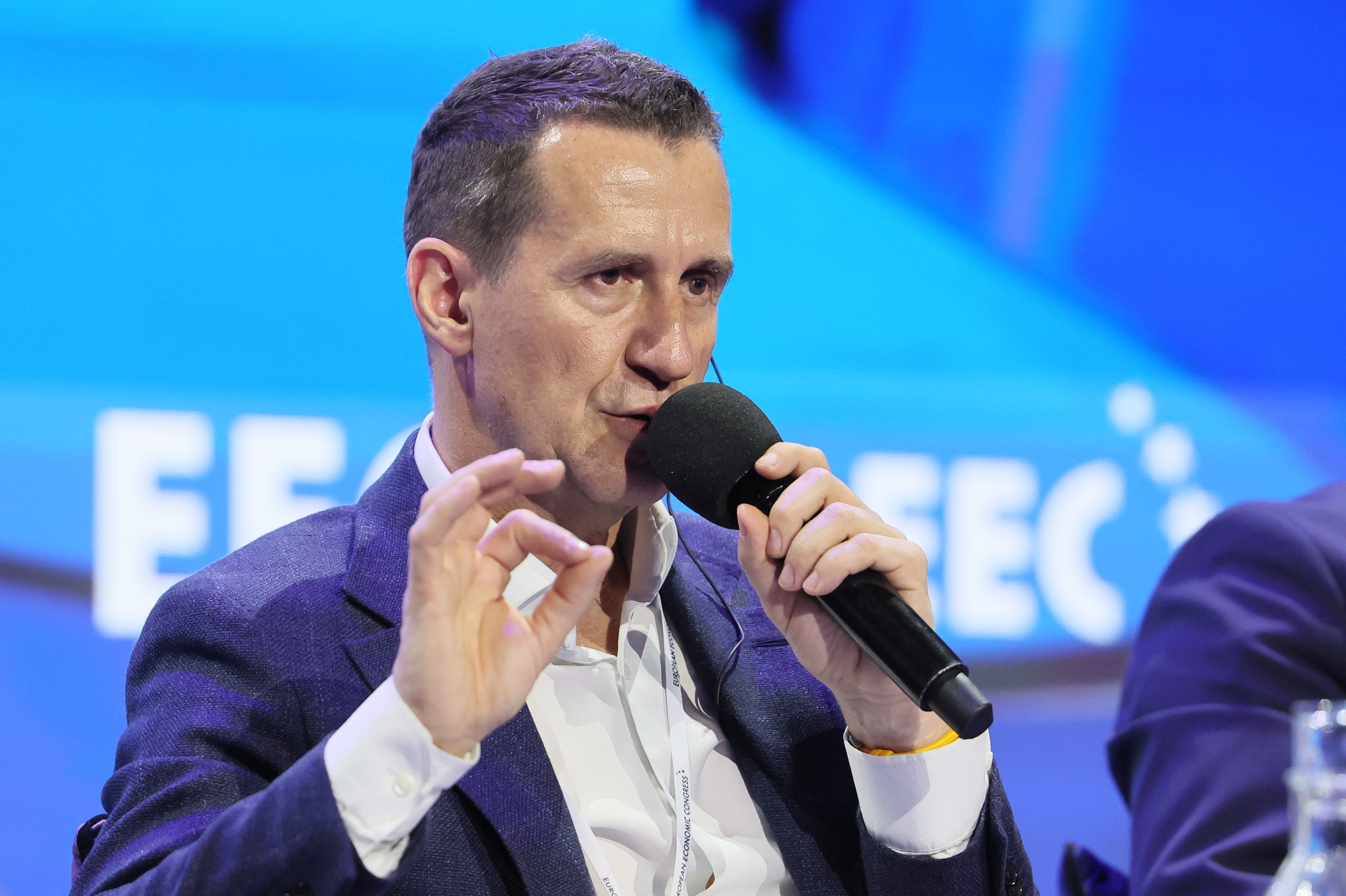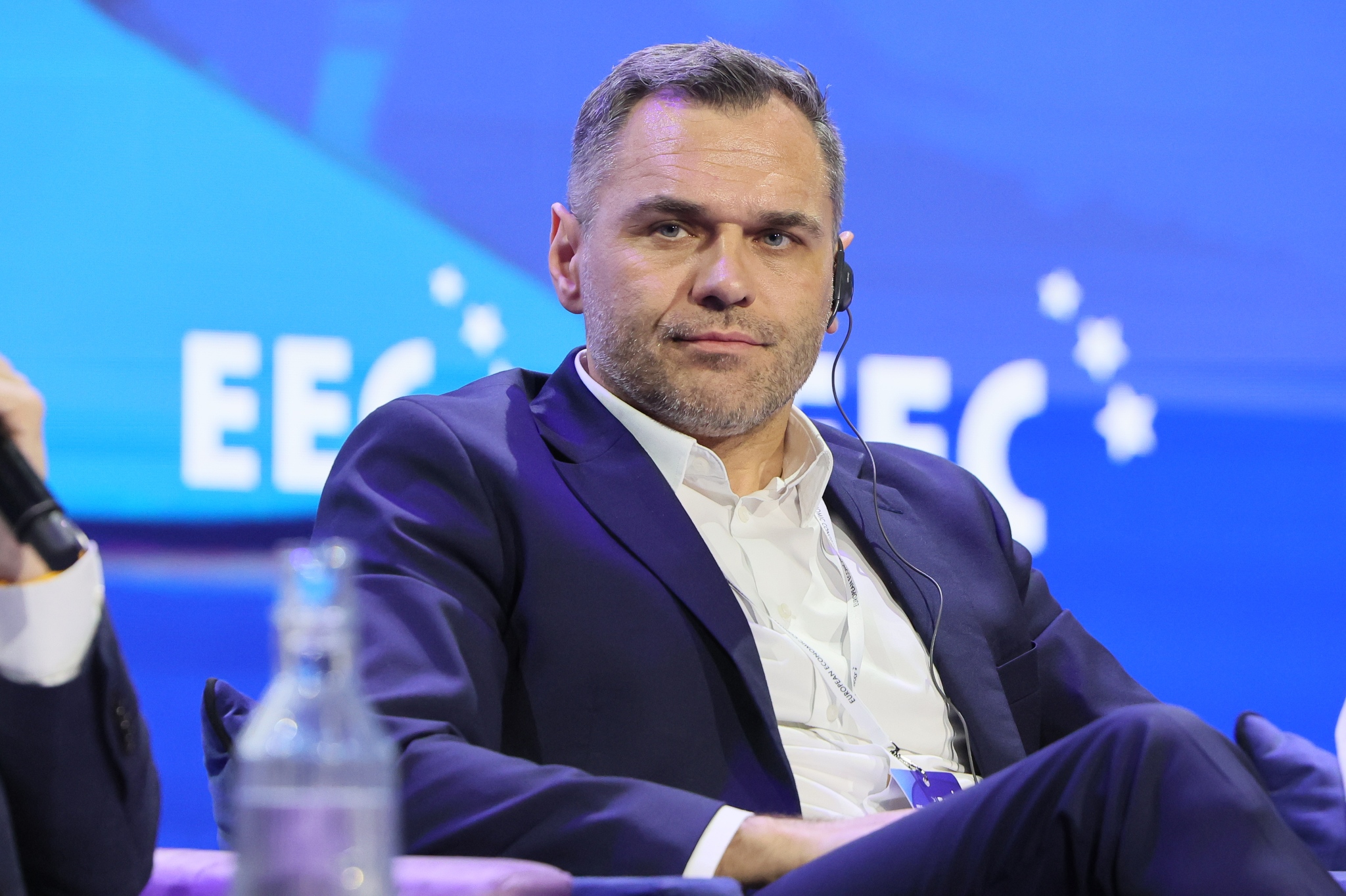AI helps build a brand, but it can also do a lot of harm to it. A big danger

- Customers expect authenticity from brands - emphasized the participants of the debate "Building the brand of tomorrow" , which took place during the European Economic Congress .
- Artificial intelligence is playing an increasingly important role in the brand market, it has been noticed.
- It is important for brands to remain "human", the debaters pointed out.
By definition, a brand is a set of names, terms, signs, symbols, logos, and graphic designs, or combinations of all of these elements, the purpose of which is to identify goods, services, or entities and to distinguish them from competing products in the market, thereby generating economic benefits. It is no wonder that brands or trademarks can reach astronomical values.

But what increases the value of a brand? As Dorota N. Haller, Vice President of IAA Poland, International Advertising Association, Client Solutions Director, RASP, pointed out during a debate on this issue at the 17th European Economic Congress , there is a lot of talk about the authenticity of brands and she herself believes in it very much.
Strong brands are authentic brands; of course, in business, profit is a value. However, it cannot be the brand's guiding principle - explains Dorota Haller.
- Strong brands are those that are authentic, that are based on business values. Of course, profit is a value, but it cannot be the brand's guiding principle, because it says nothing to consumers - explained the expert.
She pointed out that we are currently dealing with changes. Both in creating brands and creating their recognition, more and more innovation is visible.
What is important, however, is that innovation should not be just for its own sake. It should support consumers in their lives - it should not be just a gadget.
At the same time, innovation should be ethical. When creating brands and their recognition, the content accompanying it must be true.
- If we create components (brands - author's note) using artificial intelligence, let's talk about it - added Haller.
Experts continue to emphasize how important social involvement is in building a brand. There is a lot of talk about ESG today, but real social involvement is needed; there can be no room for unfair practices, such as green washing , which mainly consists of deliberately, misleadingly presenting a product or company as more ecological than it actually is, in order to achieve financial benefits or a positive reputation.

- It all sounds simple, but it isn't - Haller admitted. She noted that consistency is also necessary in building a brand: a brand is not built in two days, but for years .
- It is therefore important to have good partners, agencies and advisors - added the vice-president.
The value of brand authenticity was emphasized by Szymon Pieczyński, Managing Director at KAVA. - This is not something we have just invented. Studies were conducted in the 90s, which found that the strongest brands are built on a mission, vision and authenticity - he said.
17th European Economic Congress
In his opinion, it is important that the values that are consistently communicated and professed at all levels of the brand are not only visible in advertising, but also in the behavior towards employees and contractors. These are fundamental values that show in which direction these brands should develop.
- Every year, one of the companies publishes a report on brands. What scares me is the fact that more and more respondents to the survey indicate a lack of trust in brands - Pieczyński emphasized.
As the specialist said, we have a crisis of trust in brands, in leaders - both political and business.
The perception of brands is bad. As many as 61% of respondents indicated that brands only serve the interests of a narrow group of wealthy shareholders and forget about the common man.
It is no wonder that specialists emphasize the importance of recognizing the true values for a given company, for a given brand. They should be exposed inside the company and outside. In this way, you can build a brand.
A brand for everyone, or progressive personalizationAnd what will the brand of tomorrow be like? According to experts, the brands of tomorrow will also be more personalized. Artificial intelligence will be used in this process.
However, what they warn against is the "mechanical" nature of artificial intelligence . It is important not to forget about it. AI should help, not replace the human factor . This will still be key; brands should not use AI irresponsibly, because it risks entering the area of manipulation, sophisticated, but also dangerous targeting. The recipient will feel trapped and will not be able to make conscious decisions.
Actions must be balanced so that the human face of the business is preserved.

As Piotr Piętka, head of Publicis Groupe Poland, added, we are currently facing a huge technological revolution. It is a megatrend that is accelerating.
- If we imagine that we are in a technological change (AI development - author's note) that changes everything, and most of all changes human behavior, only then will we be able to understand what can be done with it - said the expert.
- On the one hand, brands can use this as a huge opportunity, but it can also be a threat - suggested Piętka.
In his opinion, AI primarily affects marketing very strongly. Brands need to change their approach to this.

- We need to observe brands in the media based on new tools - emphasized Marcin Szczupak, CEO of Mediaboard Polska.
As he explained, without a thorough analysis of what is happening, companies will not be able to assess the changes and react to them.

However, as Katarzyna Zwolska, Head of the Digital Communications Section at Play, pointed out, the current changes will also affect brand sales.
- It is worth noting that sales are also changing - they are different in the case of traditional distribution channels, different in the case of the digital channel - said Zwolska.
The specialist has experience in the telecommunications market, which is very competitive. It is true that telecoms do not have to create a need for access to the services they offer, because everyone wants to have the possibility of immediate communication.
However, acquiring a customer and then retaining them is a different matter.
wnp.pl




